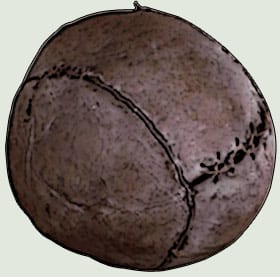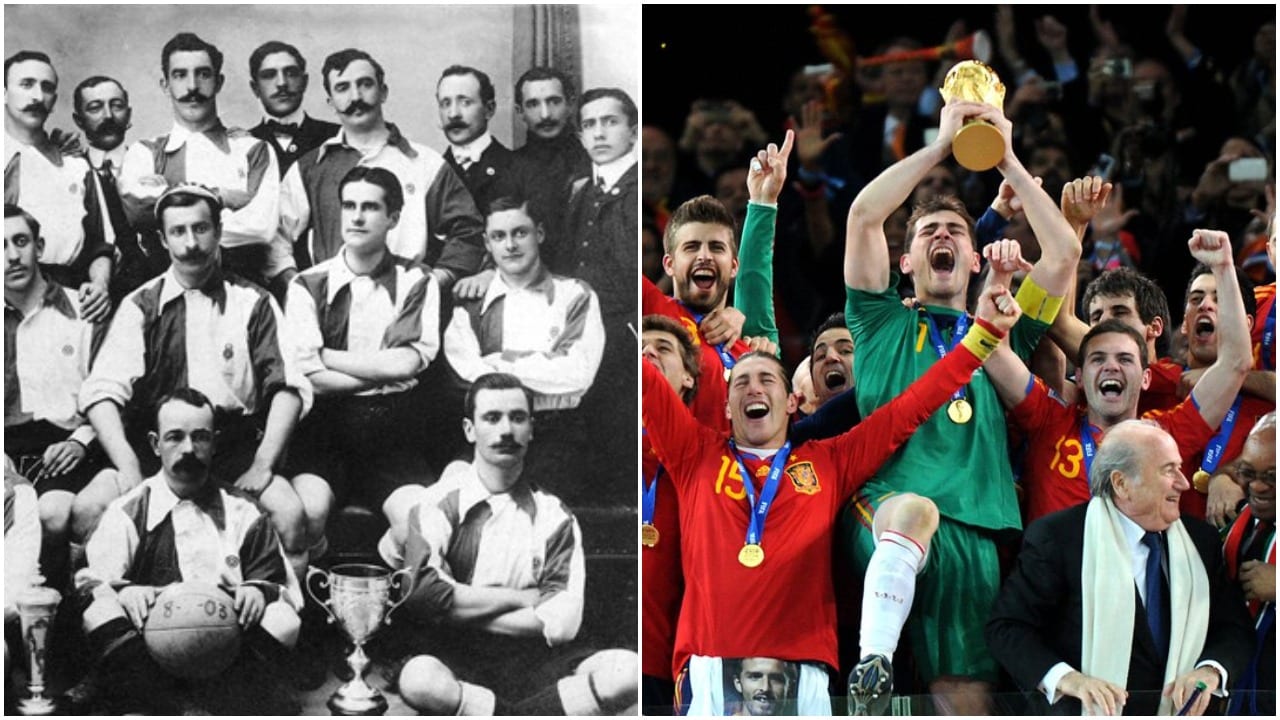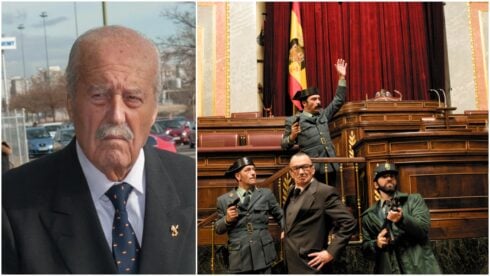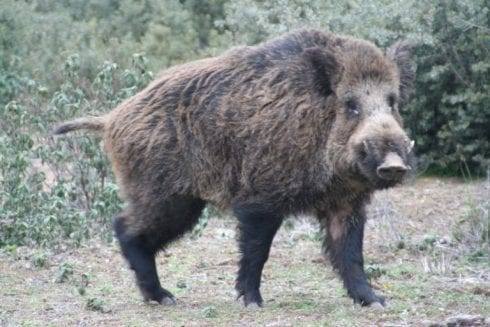
IT’S not even close…by any measurement, football is unequivocally the most popular sport on the planet.
It is estimated that close to four billion (yes, you read that correctly – billion, not million) tuned in to watch the FIFA World Cup last summer.
The sport has the highest paid athletes, the most professional leagues and the most expensive television rights.
At any given time, more than 240 million people worldwide are active participants in football (or ‘soccer’ for those North Americans out there).
But the history of this revered sport is complicated.
Records trace the genesis of something similar to football back 2,000 years to ancient China, Greece, Rome and even Central America.

In any case, it was in the 13th Century that the British began kicking around an inflated pig’s bladder.
Local denizens would travel between villages with the aim of kicking the ‘ball’ against a designated church door to settle local disputes.
The game was often violent and sometimes deadly.
In 1815 Cambridge and Eton College began to codify the rules and by 1863 the English began to form the leagues and federations we know today.
Over the next 50 years football was spread by British immigrant workers, colonialists, sailors and exchange students to nearly all corners of the globe. Spain was no exception….
If you ask where and when the first recorded football game took place on the Iberian Peninsula, the answer is right here in Andalucia.
In 1873, amidst the instability and financial bankruptcy of the Spanish state, the Rio Tinto mines near Huelva were purchased by British entrepreneurs.
Over the next few years an influx of British miners, garrison soldiers and railroad workers arrived.

In 1887, on the feast day of San Roque (the patron saint of the sick and disabled) locals and Brits gathered to celebrate.
This two-day fiesta had a reputation as a drunken melee which included (when the men were sober enough to stand upright) climbing a greasy pole, donkey races, a tug-of-war, etc.
The Brits celebrated by forming two teams that were picked exclusively from among non-Spaniards in the first recorded ‘foot-ball’ match on the Iberian Peninsula.
Captain W.F. Adams, member of an English garrison unit that served to protect British mining interests, chronicled the event to his superiors.
He wrote: “Marched out of Huelva on Wednesday. Played football with some railway workers… the only diversion we truly had.”
Although the note was short, cursory and handwritten, it remains the earliest tangible proof of Rio Tinto’s claim to be the ‘cuna del futbol espanol’ (birthplace of Spanish football).
Was it truly the first football game played on Spanish soil? It depends on who you ask….

Nine hundred kilometres to the north, in Basque country in and around Bilbao, a different story is told.
Once again, the ‘first game of football’ was tied to the British and mining but in an entirely different context.
The Rio Tinto enterprise was run like a mining camp with the local Spanish miners’ subject to exploitation and the uncertainty of mineral supply and demand.
For the most part they were segregated from British management. Not so in the more developed/industrialized north.
Bilbao, unlike Andalucia, was becoming an industrial dynamo.
Technology and the second half of the British industrial revolution required steel, shipbuilding and chemical industries – Bilbao’s tour-de-force.
Local Basque shippers and industrialists were front and center in forming a strong Spanish entrepreneurial class not subject to the rule of British demands.
Many of the sons of Basque’s educated class went to Britain to complete their education where they developed an interest in football and upon their return began to arrange matches with British workers.

Thus, football’s Anglo-Saxon roots had to contend with the Basque’s strong sense of an independent culture and political identity.
Unlike the Rio Tinto/Huelva case, the early introduction of football to the Basque Country provided an avenue for integration and participation between the British expats and locals.
An 1893 article in a Bilbao newspaper speaks to this point when a group of Bilbainos placed a challenge to a team of Los Ingleses to a football match.
The Englishmen won the toss and chose to play the first half with the sun behind them.
The game was noted to be very physical with heavy tackling that angered the Bilbainos and gave the Los Ingleses a 0-2 advantage at halftime.
With low spirits, the local team returned to their locker-room and were confounded by the delivery of 11 ‘exquisitely roasted’ chickens as a gift of restitution from their opponents.
The game was delayed to allow the locals to enjoy their meal- just as the wily Los Ingleses had planned.

By the time play resumed the sun was setting, slowing the Bilbainos in sunlight and indigestion.
After their 0-6 humiliating defeat, the locals vowed then and there to build competitive teams.
In 1897, four years after that definitive ‘chicken match’, Basque football enthusiasts were confident enough about their own abilities to form one of the first local, all Spanish, soccer clubs.
Even though the club is/was called (ironically) the anglicized ‘Athletic Club’, it is emblematic of being the first example of the transmigration of football into the DNA of Spanish culture.
The first recorded football game may have (or not) taken place in Rio Tinto but the first football team of all Spaniards took place in Bilboa.
The fervor of soccer quickly spread exponentially from Basque country across northern Spain to Madrid, Catalunya and beyond.
By 1915 regional Spanish teams began league play. In 1920 Spain won the silver medal in the Olympics (Antwerp).
By 1928 the meteoric rise of league rivals Real Madrid and FC Barcelona had become a Spanish obsession (think El Classico!). Spain’s international teams are prolific as well.
They finished fourth in the 1950 World Cup and won the European Championship in 1964 and were runners up in 1984.
Winning the gold medal in the 1992 Barcelona Olympics is a source of great national pride as was winning the World Cup in 2010.
Suffice it to say that football…errr…fútbol, had taken root in Spain.
In reviewing the history of fútbol in Spain, is it not comically apropos that its origins are traced to a drunken fiesta in Huelva and the ‘chicken match’ in Bilbao?
Click here to read more News from The Olive Press.








